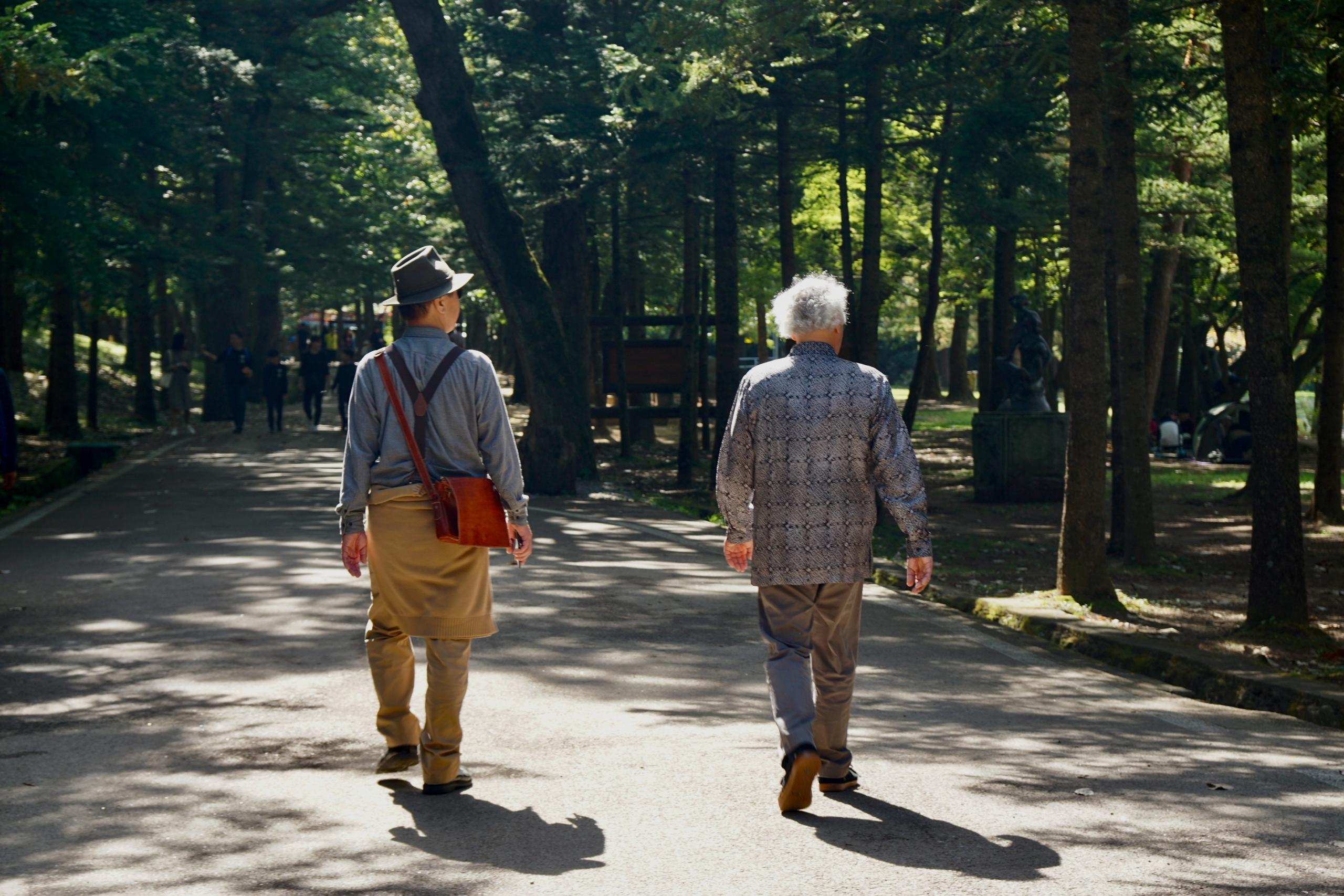If you are searching what is Korean age system, you may know that recently, the world was taken aback by the news that Koreans may soon be considered one year younger!
Even though Korea’s beauty products and healthy cuisine are known to be potent, can they reduce a person's age by a whole year? How old are your favourite Korean actors really?
We are so accustomed to our conventional way of calculating our age that any other method may seem strange or overly complicated. However, once you understand the Korean age system, you'll realise how straightforward it is:
- At birth, everyone is considered one-year-old
- On January 1, everyone adds one year to their age
- On their actual birthday, people celebrate, but their age doesn't change.
Let’s be honest, even older South Koreans can find the Korean age system perplexing. To add to the confusion, you’ll soon discover that the Korean age system is not consistently applied. Here is how it can complicate every aspect of a Korean person’s life.
So how does the Korean age system work?
Here’s a Korean age system calculator, using an example of a child born on December 30:
- For two days, they get to be one year old before adding another year.
- Just three days after their birth, they are already two years old.
- Now consider how this South Korean age system has significant implications for a person's school enrolment, marriage, and, for men, mandatory military service.
So where did it all originate?
Following the Korean War, the South Korean government adopted the international age system, which is the age system we are familiar with. According to this system, a baby is considered 0 years old at birth, and every birthday adds one year. However, the government does not have the final say in everything.
By contrast, the alternate year-age system, which is the Korean age system is still widely used in schools and determines when males must fulfil their mandatory military obligation. In this system, babies are considered 0 years old at birth, but add one year every January 1. The Korean age system even tripped up Korean K-Pop superstars BTS about their military service obligation.
Overall, the Korean age system is an intriguing cultural aspect that may seem perplexing at first, but it's an essential part of Korean life.
Want to give private lessons?
Join the Superprof community and share your knowledge with inquiring and motivated students.
How Does the Korean Age System Work?
The origins of the Korean age system remain largely unknown, but we do know that it was used by other Asian countries even though it was eventually abandoned.
Lunar age is still celebrated by many older people in Asia, often in addition to their "international" birthday, but it has no impact on any official dealings. Unlike the Lunar age, the South Korean age system plays a significant role in South Korean culture, affecting how people address one another with respect or honour each other which is an integral part of the culture.
Even grammatical structures can revolve around the age of the person you are speaking to. Changing the Korean age system would mean revamping the culture and language, and changing school admissions, procedures, job hiring standards, and health guidelines. During the Coronavirus pandemic, health officials used alternative ageing systems to determine the vaccine rollout plan, leading to confusion and frustration among some people who did not yet qualify for vaccination but were required to produce a vaccination certificate. This of course is a case in point how the Korean age system calculator can play havoc with international events.
What is the Legal Age in the South Korean Age System

One might assume that with three different methods of calculating one's age in Korea, there would be opportunities for some to manipulate their age to purchase cigarettes and alcohol. While this may happen in real life, it is also commonly depicted in Korean films. The legal drinking age in Korea is officially 19 years old, and convenience store clerks may inquire about one's age in Korean years before allowing them to purchase tobacco products.
For clubbing in Korea, you’ll need a valid form of identification that shows your date of birth, as school uniform club nights require attendees to prove they are of legal age, which is also 19.
Regarding legal age and the age of consent, for government purposes, 19 is the age of majority. In the South Korean age system, newborns are considered one year old, and their age increases by one year every January 1st. You may wonder how the Korean age system calculator works with actual birthdays, but these are not taken into account.
How does the Korean age system work in marriage?
To apply for a marriage license, individuals must be 20 in the South Korean age system or 19 by international standards. However, with parental consent, males may apply for a marriage license at the age of 18, and females at the age of 16. It is also worth noting that South Korea has a traditional view of marriage, including parental approval even for divorce.
How does the Korean age system work concerning driving? Sixteen-year-olds may obtain a license to ride a motorbike with an engine under 125cc while driving a car or a motorbike with a larger engine requires the licensee to be over 18 years old by international standards. A commercial driver's license requires the licensee to be 19 years old by international standards.
Still, searching what is Korean age system. Keep reading.
Use the Korean Age System Calculator on Yourself
Have you attempted to calculate your Korean age after reading all of this?
Did you find it confusing?
It's not as simple as adding one year to your current age. Here's a quick tutorial using the Korean age system calculator to see if you got it right.
This year is 2023, so add one year to account for the added year Koreans receive at birth. From 2024, subtract your birth year. Congratulations, you have just calculated your Korean age. Keep in mind that your actual birthday doesn't matter in the South Korean age system – instead, it considers your day of birth to be January 1.

For a more accurate calculation, another Korean age system calculator takes your birthdate into account. To use this method, first, add one year to your current age. If you haven't celebrated your birthday this year, add another year. If you have already celebrated, there's no need to add another year.
Why Change the Korean Age System?
The South Korean age system is deeply ingrained in every aspect of Korean life, including language and social customs.
Changing it would require immense effort and careful planning. However, there are compelling reasons to consider doing so. For instance, the current system of assigning school enrolment ages based on the traditional system leads to unfair academic and developmental advantages for some students and disadvantages for others.
This can pave the way for bullying and academic inequality in the highly competitive South Korean education system. Similarly, the honour system can also contribute to a culture of bullying, particularly among younger students who are forced to serve their older classmates. Some would argue that it is essential to consider changing the age system to ensure fairness and eliminate such forms of abuse. South Korea is a technologically advanced, influential country that has achieved impressive feats in many areas, and therefore critics would ask what is the Korean age system relevant in today’s global village of the world.
Finally, the Korean age system has a deep-rooted influence on every aspect of Korean society. It affects not only the way people calculate their age but also how they interact with others and how they are perceived by society. The age-based hierarchical culture is ingrained in the Korean language, which has specific vocabulary and grammar structures to show respect and honour according to age.
The complexity of the South Korean age system and its influence on Korean society means that changing it would be a daunting task that requires a meticulous plan. Any effort to change the age system would have to address the various social and cultural issues associated with it. For example, it could lead to confusion and complications in determining age-related legal matters and other important social interactions, such as school enrolment and the military draft.
Furthermore, the age-based hierarchy is so ingrained in Korean culture that it has become a part of the national identity. Korean people take great pride in their traditions and cultural heritage, and many view the Korean age system as an important symbol of their cultural identity. Therefore, any changes to the age system would have to be approached with great sensitivity and care to avoid offending or alienating those who cherish this aspect of their culture.
In short, while there may be valid reasons to consider changing the Korean age system, it would require a herculean effort and a well-planned strategy to address the various social and cultural implications associated with it. Any changes made would need to be carefully considered to avoid causing confusion or offence and to preserve the cultural identity of the Korean people.
Now that you have the answer to the questions about the Korean age system, why not learn more about traditional Korean cuisine?
Want to give private lessons?
Join the Superprof community and share your knowledge with inquiring and motivated students.
Summarise with AI:





